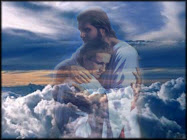Hear O Dear One, the Lord they God ... Is One!
According to estimates of experts, about 54% of the world's population (3.8 billion people) consider themselves guided by the Abrahamic religions, monotheistic faiths recognizing a spiritual tradition identified with Abram from Ur, who earned the spiritual name Abraham.
Ur was an extremely ancient and important metropolis on the banks of the lower Euphrates River. In Abram's time, the people of Ur were for the most part thought to be polytheistic, worshiping many gods. Abraham (Ibraham in the Islamic tradition) is believed by most to have been guided to remove his family from such a prevailing polytheism so they could worship only one god (think of Mormons trekking through wilderness in search of a land where they could worship in their own way).
But wait! Did Abram really worship only one God, yet a God separate from himself? Or did he worship God as One ... not separate from himself?
Evidence is strong for the latter interpretation. Abram is considered father of the Hebrews and in fact
"Abram" is a name of Hebrew origin meaning "exulted father." But in Genesis 17:5 we read that the Voice for God told Abram: "Neither shall thy name any more be called Abram, but thy name shall be Abraham; for a father of many nations have I made thee." Indeed, "Abraham" in Hebrew means "father of many." But in spiritual symbolic language the exhaled "h" sound added to a person's name signifies that person's awareness that God is not separate. Abraham's wife also enjoyed such awareness. Her name was changed from Sarai to Sarah.
Much later Hebrew descendents of Abraham became known as Israelites. Did the Israelites continue an old tradition dating to their exulted father? The core Hebrew prayer, the Shema, begins, Hear O Israel, the Lord our God is One. This prayer is called "our witness" because two Hebrew letters (Ayin and Dalet) in the this sentence are enlarged and together these two letters form the word "witness."
Interestingly, the Hebrew word "yachid" meaning "one and only one," which seemingly would have been used to differentiate a monotheistic God from polytheistic gods, is not used in the Shema. Instead, the Shema uses the Hebrew "echad" implying unity in diversity, One as all.
Jesus Christ, explaining terms he uses in his modern day revelation A Course in Miracles, states: "The term 'soul' is not used except in direct biblical quotations because of its highly controversial nature. It would, however, be an equivalent of 'spirit,' with the understanding that, being of God, it is eternal and was never born."
Throughout A Course in Miracles, Jesus makes it clear that we are all one, and all of God. There is only one ... God. Wouldn't it be wonderful to live in constant awareness of oneness, like Abraham or Sarah? Wouldn't it be amazing if one day you woke up to an inner Voice saying: "From now on, add an 'h' to your name."

Each month our Holy Spirit gives a message of prophetic revelation which helps individuals open spiritually and understand Jesus' teaching.
If you would like to be alerted when these messages are published please "friend" Brian Eenigenburg on Facebook. You'll not only be able to read interesting articles, but also reply and comment. Fun!
"...nor will people say, 'Here it is,' or 'There it is,' because the kingdom of God is within you. (Luke 17:21)
Click below for more information on A Course in Miracles Light Sessions:
Holy Instant Christian Fellowship in Salt Lake City



